call now 9997155111
Duration First year B. Pharm: 4 Years and B. Pharm Lateral Entry (to third semester): 3 Years
Eligibility Criteria First year B. Pharm: Candidate shall have passed 10+2 examination conducted by the respective state/central government authorities recognized as equivalent to 10+2 examination by the Association of Indian Universities (AIU) with English as one of the subjects and Physics, Chemistry, Mathematics (P.C.M) and or Biology (P.C.B / P.C.M.B.) as optional subjects individually. Any other qualification approved by the Pharmacy Council of India as equivalent to any of the above examinations. B. Pharm lateral entry (to third semester): A pass in D. Pharm. course from an institution approved by the Pharmacy Council of India under section 12 of the Pharmacy Act.
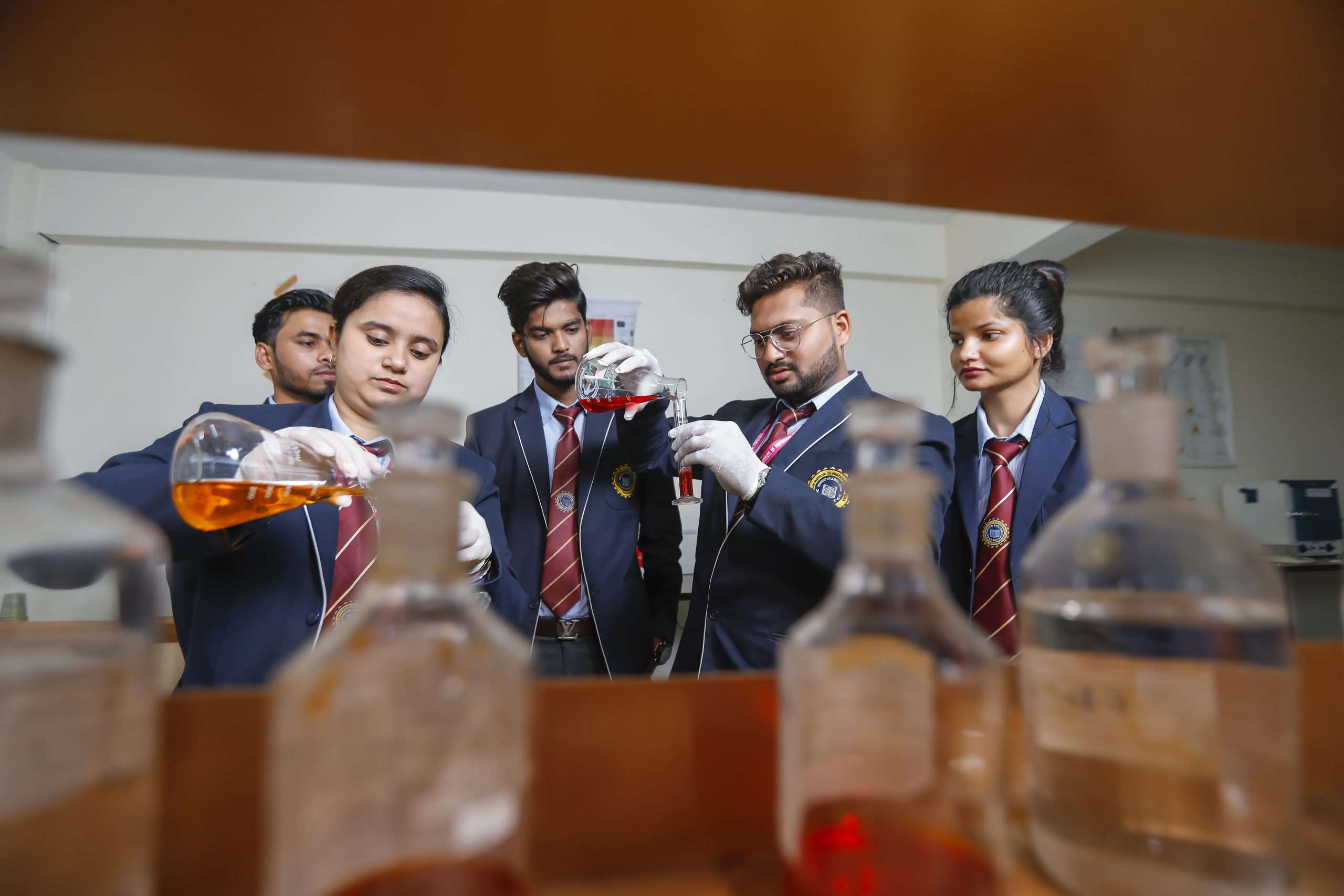
The Bachelor of Pharmacy course intends to create proficient Pharmacists/Pharma Technologist/Quality Specialist/Pharma Entrepreneur/Clinical Pharmacologist/Corporate Pharma Executive, etc. Along with that, this program unlocks diverse career opportunities for candidates so that they can contribute to Research & Development Technology, Business Development, Quality Assurance and Clinical Research & Clinical Pharmacy.
Why take this Course?
A few of the areas that are presently in demand for B Pharma graduates are:
Why choose Us?
Progressions & Career
Here are the opportunities after pursuing a B Pharma Course:
Progression:
Career:
Here are the career roles a candidate can explore when completing this course from a B Pharma College:
The Shivalik Advantage
If you meet the B Pharma Eligibility and intend to pursue this course then the following Shivalik Advantages are worth noting:
Top Recruiters


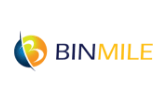

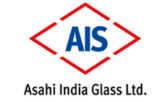

SIF (Last 4 Years)
Different Committees/Cells
FAQ's
Those students who aspire to make a career in the Pharmaceutical Industry must pursue Bachelor Pharmacy. It is a decent career choice for those students willing to make a career in scientific writing and clinical research. Moreover, those students who wish to join the healthcare industry and work at different nursing homes, hospitals, etc. can pursue B Pharmacy. This career field is also a recommended choice for those students aspiring to make a career in the pharmaceutical industry abroad.
When students go through the B Pharmacy Admission Process, they also think about which is the best field in Pharmacy. Well, Doctor of Pharmacy is the best field in pharmacy. Essentially, it is one of the highest-earning branches. A pharmacy doctor can earn more than a family medicine doctor. In India, Doctor of Pharmacy has a bright future in the coming 3-4 years.
In all these sectors, B Pharm graduates can effectively explore the most relevant job based on their skill and qualification. Whichever job a B Pharm graduate chooses from these industries, the average salary in India can be in a range of INR 2-5 LPA. Getting work experience or pursuing higher education can assist them to get a higher salary.
For fresh B. Pharm graduates, ample range of roles and sectors are available to explore. Scopes after completing B.Pharm are extremely diverse and a graduate is presented with a broad assortment of rewarding employability opportunities in different industries including:
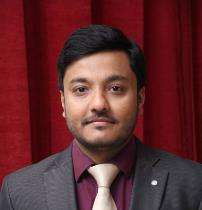
Dr. Sayantan Mukhopadhyay with a total experience of over 15.5 years in research and academics, currently working as Professor and Principal at College of Pharmacy, Shivalik Campus, Dehradun. The fact that he has published over 50 research and review papers, holds several patents, and has authored books and book chapters underscores his expertise in the field. Additionally, his involvement in organizing and chairing workshops, symposiums, conferences, and seminars demonstrates a dedication to advancing knowledge and fostering academic dialogue.He has also played a mentoring role, guiding approximately 30 M. Pharm. students and currently supervising six Ph.D. research scholars. In recognition of his outstanding contributions to the field of Pharmaceutics, he has been honoured with the “Excellence Contribution in the field of Pharmaceutics” award at Social Talks. Being a Life Member of the Indian Pharmaceutical Association (IPA) and the Society for Ethnopharmacology, India, further showcases his active engagement in professional organizations.
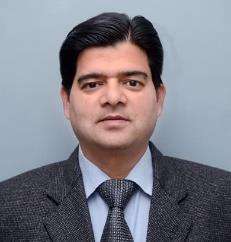
Dr. Amit Semwal is a Professor and Head of the Department with 15 years of academic and research experience. Specializing in Pharmaceutical Chemistry, his areas of interest include phytochemistry, medicinal chemistry, and nanoformulation development. He holds an M. Pharm in Pharmaceutical Chemistry and a PhD.He has been recognized with the Young Scientist Award by UCOST and has organized several international and national conferences, seminars, and workshops within the department. Dr. Semwal has published more than 30 research papers in international and national peer-reviewed journals and has presented 13 research papers at various conferences. He has also supervised numerous postgraduate (M. Pharm) students for their dissertation work.Dr. Semwal holds 7 patents and has authored 3 books or book chapters. He has actively participated in 15 conferences and faculty development programs, showcasing his dedication to continuous professional development and academic excellence.
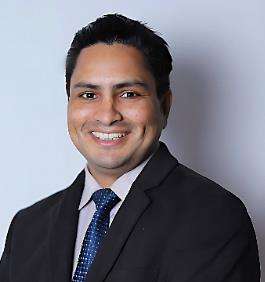
Dr. Vipul Negi is an Associate Professor with over 10 years of academic and research experience. His area of specialization is Pharmaceutical Chemistry, with a keen interest in medicinal chemistry, chemistry of natural products, and natural waste management. Dr. Vipul holds an M. Pharm in Pharmaceutical Chemistry and is currently pursuing his PhD.He has contributed to the field with 9 research papers published in international and national peer-reviewed journals. Dr. Vipul has also actively participated in over 8 workshops and has presented 8 research papers at various international and national conferences. He has supervised graduate (B.Pharm) students for their dissertation work, guiding them in their research endeavors.
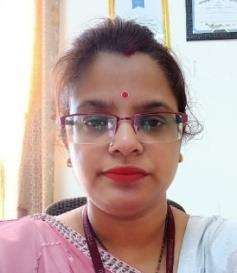
Mrs. Kiran Dobhal is an Associate Professor with an M. Pharm in Pharmaceutical Chemistry. With 11 years of academic and research experience, Kiran has developed a strong expertise in phytochemistry and waste management. Over the years, Kiran has contributed significantly to the field with 28 research and review paper publications and has been recognized with 6 patents. Kiran has also authored 5 books or book chapters and presented papers at 2 conferences. Additionally, Kiran has actively participated in 5 conferences and faculty development programs, furthering professional growth and knowledge.
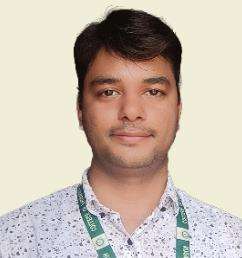
Mr. Rohit Kumar Trivedi is an Associate Professor with 8 years of academic experience. Specializing in Pharmaceutics, his area of interest lies in novel drug delivery systems. Mr. Trivedi holds an M. Pharm in Pharmaceutics and is currently pursuing his PhD.He has made significant contributions to research, with over 17 publications in international and national peer-reviewed journals, along with 8 national and international patents. Rohit has actively participated in 19 Faculty Development Programs, Short Term Training Programs, national and international conferences, and workshops. He has also presented 5 research papers at various conferences.Mr. Trivedi has authored 1 book on Research Methodology and Publication Ethics and 3 book chapters. He has supervised more than 50 B. Pharm students for their project work and serves as a reviewer for an international journal. He has completed more than 5 MOOC courses to enhance his knowledge and is a life member of APTI. Rohit has also delivered guest lectures and has been awarded the Best Faculty and Best Researcher Award by the College of Pharmacy.
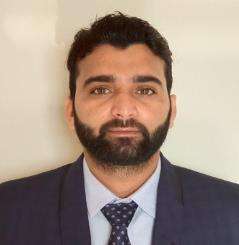
Mr. Ankit Kumar is an Assistant Professor with an M. Pharmacy in Pharmacognosy. He brings 8 years of academic and research experience to the table, with a keen interest in academics, scientific writing, research and development, metabolic activation pathways (MAP), natural products and herbal medicine, as well as clinical and preclinical studies. Ankit has been honored with several awards, including a University Gold Medal in 2016 and the GPAT accolades in 2014, 2015, and 2017, as well as the Best Article Award in 2022. His scholarly contributions include 25 research and review paper publications, 4 patents, and 12 books or book chapters. Ankit has presented papers at 9 conferences and actively participated in 25 conferences and faculty development programs. Additionally, he has been an invited speaker and guest lecturer, sharing his expertise and insights with the academic community.
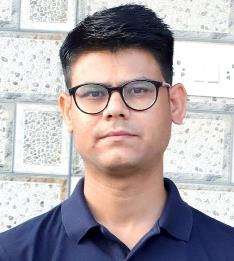
Mr. Vineet Joshi is an Assistant Professor with a Master of Pharmacy in Pharmaceutics. He has accumulated 6 years of academic and research experience, focusing on formulation and development (F&D). Vineet’s dedication and contributions to the field have been recognized with the UTU Young Alumni Award (Pharmacy Category) in 2024. He has published 10 research and review papers and holds 2 patents. Additionally, Vineet has authored 1 book chapter. He has actively participated in 6 conferences and faculty development programs, continually enhancing his expertise and knowledge. Through his work, Vineet aims to advance the field of pharmaceutics and contribute to the development of innovative pharmaceutical formulations.
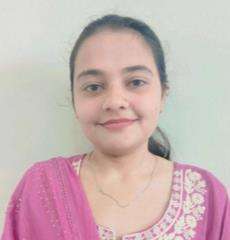
Ms. Jasmeen Syan is an Assistant Professor with an M. Pharm in Pharmacognosy. She has 10 months of academic and research experience, with a strong focus on academics. Jasmeen has contributed to her field with 5 research and review paper publications and has authored 1 book chapter. Additionally, she has presented a paper at 1 conference and attended 3 conferences and faculty development programs, demonstrating her commitment to professional growth and academic excellence. Despite her relatively short experience, Jasmeen is dedicated to making significant contributions to the field of pharmacognosy.
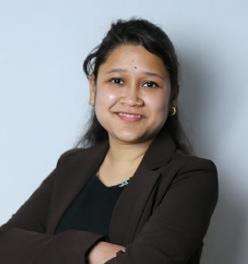
Mrs. Himanshi Rathaur is an Assistant Professor with an M. Pharm in Pharmaceutics and 5 years and 6 months of academic and research experience. Her areas of interest include novel drug delivery systems, sublingual drug delivery systems, and herbal formulations. She has received the Best Teacher Award 2023 from Uttarakhand Technical University and the Teacher of the Year 2022 from Uttarakhand Pharmacy Council, APTI Uttarakhand, and IPA Uttarakhand.Mrs. Himanshi has published 3 research papers and 7 review papers, holds 4 patents, and has authored 2 book chapters. She has presented 6 papers at various conferences and participated in 7 conferences and 6 faculty development programs. Additionally, she has been an invited speaker and guest lecturer on 2 occasions.She has completed several professional development programs, including a recognized faculty development program on nanoscience and instrumentation at NITTTR, Chandigarh, and a MOOC Course in Industrial Pharmacy-I with a score of 81%. She also participated in a short-term course on scientific writing and publication at Lovely Professional University, completed an online course on literature search and reference management, and is an A-COPE APTI Certified Online Pharmacy Educator. Mrs.Himanshi is a member of the Association of Pharmaceutical Teachers of India (APTI).
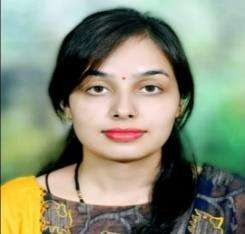
Mrs. Jyoti Sharma is an Assistant Professor with an M. Pharm in Pharmacology and is currently pursuing a PhD. She has 7 years of academic and research experience, focusing on research and development, clinical research, regulatory affairs, and pharmacovigilance. Jyoti has published 6 research and review papers and holds 2 patents. She has presented 6 papers at various conferences and has actively participated in 8 conferences and 5 faculty development programs, highlighting her dedication to professional growth and academic excellence. Through her ongoing research and academic activities, Jyoti aims to make significant contributions to the field of pharmacology and related disciplines.
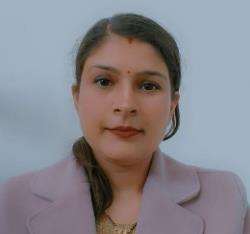
Mrs. Manasvi Saini is an Assistant Professor with a Master’s of Pharmacy in Pharmacology. With 2 years of academic and research experience, Manasvi has developed a keen interest in academics and research. She has published 3 research and review papers and authored 3 book chapters. Manasvi has also actively participated in 4 conferences and faculty development programs, showcasing her commitment to continuous professional development and academic excellence. Though early in her career, Manasvi is dedicated to contributing significantly to the field of pharmacology through her academic and research endeavors.
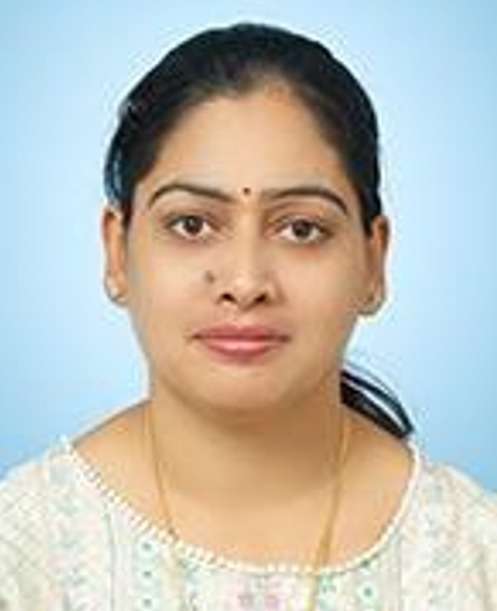
Mrs. Akanksha Semwal is an Associate Professor with an M. Pharma in Pharmaceutics. She has accumulated a total of 8 years and 9 months of experience, which includes 4 years and 3 months in academia and 4 years and 6 months in the pharmaceutical industry. During her industrial tenure, Akanksha gained extensive experience in various facets of pharmaceutical manufacturing and quality assurance. She was involved in drug formulation, regulatory compliance, and quality control processes, ensuring that pharmaceutical products met stringent industry standards. Her industrial expertise also extends to overseeing production operations, conducting audits, and implementing quality management systems. Akanksha’s areas of interest include pharmaceutics, drug regulatory affairs, and quality assurance.
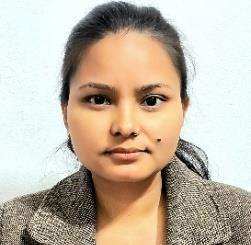
Ms. Anjali Rana is an Assistant Professor with an M. Pharm in Pharmacology. She has 4 years of academic and research experience, with a strong focus on academics and pharmacovigilance. Anjali has made notable contributions to her field, including 4 research and review paper publications, 1 patent, and 2 books or book chapters. She has actively participated in over 15 conferences and faculty development programs, enhancing her knowledge and skills. Anjali is dedicated to advancing her expertise and sharing her insights through various academic and professional platforms.
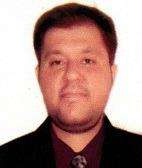
Dr. Ankit Sharma, Assistant Professor, holds B. Pharm and Pharm. D degree,with a specialization in Pharmacy Practice. With 5 years of academic and research experience, Dr. Sharma has made significant contributions to the field. He has been recognized with multiple awards, including a certificate of excellence for his contributions to Pharmacy Practice at the Health and Wellness Conclave in Dehradun (2021) and for Clinical Pharmacy at the Fox Asia Conference in New Delhi (2020). During the COVID-19 pandemic, he was honored as a “Corona Warrior” for his dedication to education and community service. Dr. Sharma has published 18 research/review papers, holds a patent for a herbal nutritional supplement, and authored an e-book on the irrational use of drugs. He has presented papers at 8 conferences and attended 17 workshops and 5 faculty development programs, showcasing his commitment to continuous learning and professional development.

Ms. Vaishali Koul is an Assistant Professor specializing in Pharmacology with an M.Pharmacy degree. With 3 years of academic and research experience, her areas of interest include pharmacology, drug trials, clinical models, and animal testing. Ms. Koul has contributed to the field with 5 research/review paper publications and holds 2 patents. She has authored 2 books/book chapters and presented papers at 2 conferences. Ms. Koul has actively participated in 10 conferences and faculty development programs, demonstrating her commitment to advancing her knowledge and expertise in pharmacology.
Curriculum
| BP101T | Human Anatomy and Physiology I– Theory |
| BP102T | Pharmaceutical Analysis I – Theory |
| BP103T | Pharmaceutics I – Theory |
| BP104T | Pharmaceutical Inorganic Chemistry – Theory |
| BP105T | Communication skills – Theory |
| BP106RBT/BP106RMT | Remedial Biology/Remedial Mathematics – Theory |
| BP107P | Human Anatomy and Physiology – Practical |
| BP108P | Pharmaceutical Analysis I – Practical |
| BP109P | Pharmaceutics I – Practical |
| BP110P | Pharmaceutical Inorganic Chemistry – Practical |
| BP111P | Communication skills – Practical |
| BP112RBP | Remedial Biology – Practical* |
| BP201T | Human Anatomy and Physiology II – Theory |
| BP202T | Pharmaceutical Organic Chemistry I – Theory |
| BP203T | Biochemistry – |
| BP204T | Pathophysiology – Theory |
| BP205T | Computer Applications in Pharmacy – Theory * |
| BP206T | Environmental sciences – Theory |
| BP207T | Human Anatomy and Physiology II –Practical |
| BP208T | Pharmaceutical Organic Chemistry I– Practical |
| BP209T | Biochemistry – Practical |
| BP210T | Computer Applications in Pharmacy – Practical |
| BP301T | Pharmaceutical Organic Chemistry II – Theory |
| BP302T | Physical Pharmaceutics I – Theory |
| BP303T | Pharmaceutical Microbiology – Theory |
| BP304T | Pharmaceutical Engineering – Theory |
| BP305T | Pharmaceutical Organic Chemistry II – Practical |
| BP306T | Physical Pharmaceutics I – Practical |
| BP307T | Pharmaceutical Microbiology – Practical |
| BP308T | Pharmaceutical Engineering –Practical |
| BP401T | Pharmaceutical Organic Chemistry III– Theory |
| BP402T | Medicinal Chemistry I – Theory |
| BP403T | Physical Pharmaceutics II – Theory |
| BP404T | Pharmacology I – Theory |
| BP405T | Pharmacognosy and Phytochemistry I– Theory |
| BP406T | Medicinal Chemistry I – Practical |
| BP407T | Physical Pharmaceutics II – Practical |
| BP408T | Pharmacology I – Practical |
| BP409T | Pharmacognosy and Phytochemistry I – Practical |
| BP501T | Medicinal Chemistry II – Theory |
| BP502T | Industrial Pharmacy I– Theory |
| BP503T | Pharmacology II – Theory |
| BP504T | Pharmacognosy and Phytochemistry II– Theory |
| BP505T | Pharmaceutical Jurisprudence – Theory |
| BP506T | Industrial PharmacyI – Practical |
| BP507T | Pharmacology II – Practical |
| BP508T | Pharmacognosy and Phytochemistry II – Practical |
| BP601T | Medicinal Chemistry III – Theory |
| BP602T | Pharmacology III – Theory |
| BP603T | Herbal Drug Technology – Theory |
| BP604T | Biopharmaceutics and Pharmacokinetics – Theory |
| BP605T | Pharmaceutical Biotechnology – Theory |
| BP606T | Quality Assurance –Theory |
| BP607T | Medicinal chemistry III – Practical |
| BP608T | Pharmacology III – Practical |
| BP609T | Herbal Drug Technology – Practical |
| BP701T | Instrumental Methods of Analysis – Theory |
| BP702T | Industrial Pharmacy II – Theory |
| BP703T | Pharmacy Practice – Theory |
| BP704T | Novel Drug Delivery System – Theory |
| BP705P | Instrumental Methods of Analysis – Practical |
| BP706PS | Practice School |
| BP801T | Biostatistics and Research Methodology |
| BP802T | Social and Preventive Pharmacy |
| BP803ET | Pharma Marketing Management |
| BP804ET | Pharmaceutical Regulatory Science |
| BP805ET | Pharmacovigilance |
| BP806ET | Quality Control and Standardization of Herbals |
| BP807ET | Computer Aided Drug Design |
| BP808ET | Cell and Molecular Biology |
| BP809ET | Cosmetic Science |
| BP810ET | Experimental Pharmacology |
| BP811ET | Advanced Instrumentation Techniques |
| BP812ET | Dietary Supplements and Nutraceuticals |
| BP813PW | Project Work |
Program Specific Outcomes and Program Educational Objectives
Professional Identity: Understand, analyse and communicate the value of their professional roles in society (e.g. health care professionals, promoters of health, educators, managers, employers, employees).
Pharmacy Knowledge: Possess knowledge and comprehension of the core and basic knowledge associated with the profession of pharmacy, including biomedical sciences; pharmaceutical sciences; behavioural, social, and administrative pharmacy sciences; and manufacturing practices.
Drugs and diseases: Understand different classes of drugs, their mechanism of action, dynamics, kinetics, structure activity relationships, pathophysiology and pharmacotherapeutics of various diseases.
Drug development: Ability to synthesize, develop and/or evaluate various pharmaceuticals and their formulations and cosmeceuticals products.
Planning Abilities: Demonstrate effective planning abilities including time management, resource management, delegation skills and organizational skills. Develop and implement plans and organize work to meet deadlines.
Problem analysis: Utilize the principles of scientific enquiry, thinking analytically, clearly and critically, while solving problems and making decisions during daily practice. Find, analyse, evaluate and apply information systematically and shall make defensible decisions.
Modern tool usage: Learn, select, and apply appropriate methods and procedures, resources, and modern pharmacy-related computing tools with an understanding of the limitations.
Leadership skills: Assume participatory roles as responsible citizens or leadership roles when appropriate to facilitate improvement in health and well-being.
Pharmaceutical Ethics: Respect personal values and apply ethical principles in professional and social contexts.
Communication: Communicate effectively with the pharmacy community and with society at large, such as, being able to comprehend and write effective reports, make effective presentations and documentation, and give and receive clear instructions.
The Pharmacist and society: Apply reasoning informed by the contextual knowledge to assess societal, health, safety and legal issues and the consequent responsibilities relevant to the professional pharmacy practice.
Analytical skills: Develop skills in qualitative and quantitative analysis of various pharmaceuticals.
Training: Acquire technical knowledge and hands on training on equipment, instruments and software used in the field of pharmaceutical sciences.
To produce pharmacy graduates with strong fundamental concepts and high technical competence in pharmaceutical sciences and technology, who shall be able to use these tools in pharmaceutical industry and/or institutes where ever necessary for success.
To provide students with a strong and well defined concepts in the various fields of pharmaceutical sciences viz., pharmaceutics, pharmaceutical chemistry, pharmacology and pharmacognosy according to the requirement of pharmaceutical industries, community and Hospital Pharmacy and also to develop a sense of teamwork and awareness amongst students towards the importance of interdisciplinary approach for developing competence in solving complex problems in the area of Pharmaceutical Sciences.
To promote the development of trained human resource in Pharmaceutical Sciences for dissemination of quality education with highly professional and ethical attitude, strong communication skills, effective skills to work in a team with a multidisciplinary approach.
To generate potential knowledge pools with interpersonal and collaborative skills to identify, assess and formulate problems and execute the solution in closely related pharmaceutical industries.
To train the students to contribute towards health care system and counseling for prophylaxis and prevention of diseases.
To encourage the students to participate in life-long learning process for a highly productive career and to relate the concepts of Pharmaceutical Sciences towards serving the cause of the society
Engineering knowledge: Apply the knowledge of mathematics, science, engineering fundamentals, and anengineering specialization to the solution of complex engineering problems
Problem analysis: Identify, formulate, review research literature, and analyze complex engineering problems reaching substantiated conclusions using first principles of mathematics, natural sciences, andengineering sciences
Design/development of solutions: Design solutions for complex engineering problems and design system components or processes that meet the specified needs with appropriate consideration for the public health and safety, and the cultural, societal, and environmental considerations.
Conduct investigations of complex problems: Use research-based knowledge and research methods including design of experiments, analysis and interpretation of data, and synthesis of the information toprovide valid conclusions
Modern tool usage: Create, select, and apply appropriate techniques, resources, and modern engineering and IT tools including prediction and modeling to complex engineering activities with an understanding ofthe limitations
The engineer and society: Apply reasoning informed by the contextual knowledge to assess societal, health, safety, legal and cultural issues and the consequent responsibilities relevant to the professionalengineering practice
Environment and sustainability: Understand the impact of the professional engineering solutions insocietal and environmental contexts, and demonstrate the knowledge of, and need for sustainable development
Ethics: Apply ethical principles and commit to professional ethics and responsibilities and norms of theengineering practice
Individual and team work: Function effectively as an individual, and as a member or leader in diverseteams, and in multidisciplinary settings
Communication: Communicate effectively on complex engineering activities with the engineering community and with society at large, such as, being able to comprehend and write effective reports and design documentation, make effective presentations, and give and receive clear instructions.
Project management and finance: Demonstrate knowledge and understanding of the engineering and management principles and apply these to one‘s own work, as a member and leader in a team, to manageprojects and in multidisciplinary environments
Life-long learning: Recognize the need for, and have the preparation and ability to engage in independent and life-long learning in the broadest context of technological change.
Facilities